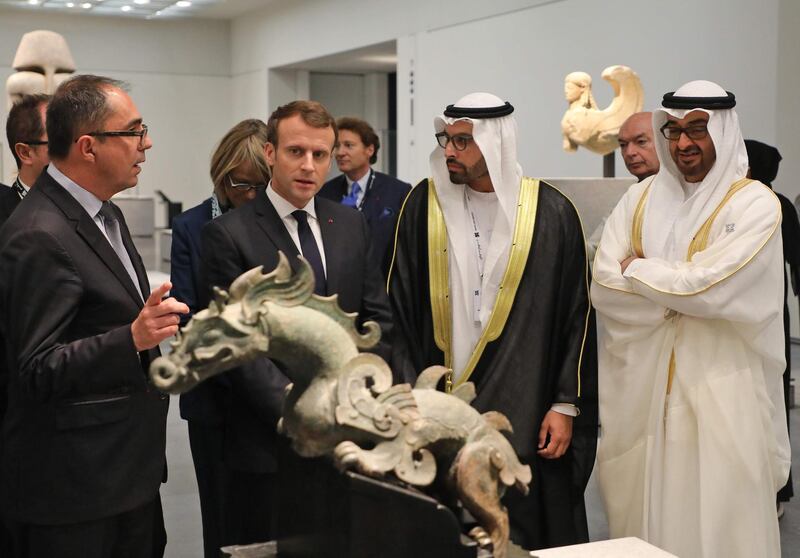At the opening of Louvre Abu Dhabi, French President Emmanuel Macron affirmed his commitment to the strong partnership between France and this country. Tomorrow the iconic building will bear witness to this special relationship with the launch of the Emirati-French Cultural Dialogue, a six-month series of concerts, workshops and festivals. The joint government initiative will be attended by French Prime Minister Edouard Philippe, who will speak at the museum tomorrow.
Less than three months after launching, Louvre Abu Dhabi has become a cultural icon for the UAE and the region. Unlike most museums, its exhibits are arranged by theme rather than origin; as such it offers a message of unity and cultural understanding through the ages, making it an apt setting for the launch of a cross-cultural exchange. Louvre Abu Dhabi is, Mr Macron said in November, an outpost in the battle against obscurantism. It therefore stands in direct opposition to Qatar's recent attempt to politicise it.
This week the diplomatic dispute between Qatar and the Arab quartet rolled into its eighth month. And after all this time, the behaviour of Doha continues to widen the divide between itself and the UAE, Egypt, Saudi Arabia and Bahrain. Starved of options, Qatar has turned to increasingly futile attempts to score points. In the latest such venture, it has been at pains to discredit Louvre Abu Dhabi, an emblem of cultural understanding that has catapulted the UAE onto the global art scene.
This week, Qatar misrepresented a meeting between its officials and those of the Louvre in Paris, claiming that an unintentional error regarding a map of the Arabian Peninsula had led to an official investigation. In reality, that mistake was corrected immediately when it became known to the museum. These facts have not stopped Doha from muddying the waters. As Sheikh Mohammed bin Zayed, Crown Prince of Abu Dhabi and Deputy Supreme Commander of the Armed Forces, said at the opening, the message of unity that the museum sends out cannot be tainted by political point-scoring. Fortunately, attempts to stoke anger or undermine cultural ties have failed.





